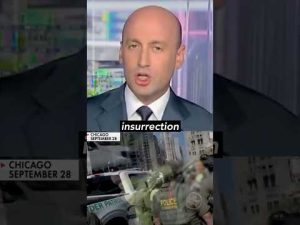America watched in horror as conservative firebrand Charlie Kirk was gunned down while exercising the very freedoms his movement has fought to protect, a raw and tragic moment that exposed the rot at the center of our cultural institutions. What followed should have been simple: unified condemnation of political violence and heartfelt mourning for a husband and father. Instead, the reaction from the self-styled “evangelical elite” was bewildering and revealing, a mix of snide contextualizing, tepid sympathy, and headline-grabbing lectures about tone that read more like reputation-management than repentance.
Christianity Today’s now-notorious obituary framing and other establishment commentaries quickly became Exhibit A in the argument that many of these gatekeepers are more invested in preserving their cultural credibility than in defending the flock. Instead of a sober reckoning over an act of political violence, readers saw a familiar pattern: the same elites who spent years denouncing grassroots conservatism for being crude and uncompromising suddenly patting themselves on the back for sophistication. That pivot from disdain to sanctimonious eulogy smells of convenience, and conservatives rightly called it out.
Worse still, influential voices inside evangelical institutions counseled pastors to avoid hard preaching on the subject, urging neutrality in pulpits when moral clarity was demanded. This cowardice—this refusal to name evil as evil—was seized on by critics who argued that such leaders have abandoned the prophetic calling of the church in favor of media-safe, donor-friendly ambiguity. When blue-chip evangelical structures show more concern for their image than for truth, grassroots believers are left to pick up the pieces.
Meanwhile, the left’s darker fringe celebrated the murder online, cheering in forums and social feeds as if political differences justified murder, revealing the violent moral vacuum at the heart of today’s progressivism. Those grotesque rejoicings were captured across social platforms and documented widely, and they deserved the fierce rebuke they received from decent Americans on both sides of the aisle. If evangelical leaders were serious about calling out dehumanizing rhetoric, they would have done so immediately and without equivocation—yet too many chose silence or manufactured balance.
Hypocrisy from these elites runs deeper than timidity: many long-time cultural arbiters spent years trashing Kirk and his movement, then rushed to borrow his martyr’s cloak once his murder made him untouchable in polite circles. Podcasts and commentators across the conservative media landscape have rightly exposed this backstabbing and seat-saving posture, pointing out that you don’t get to denounce a man’s methods for years and then claim his mantle when it suits your narrative. The American church cannot heal if its leaders treat public tragedy like a PR opportunity.
There is a nobler path forward, and it starts with everyday Christians refusing to be lectured into silence by the elites. Support for ministries that protect persecuted believers abroad and stand for uncompromised truth at home—organizations like The Voice of the Martyrs that tirelessly aid Christians who suffer for their faith—shows what real Christian courage looks like, and it deserves our backing. If leaders in our pulpits and parachurch organizations won’t lead, patriots and parishioners must rise to the occasion and fund the work of those who actually serve the persecuted rather than curry favor with Washington insiders.
So let this be a reckoning: hardworking Americans and faithful churchgoers should stop outsourcing moral leadership to a class of experts more eager to preserve their platforms than to preach the truth. Hold the elites accountable, demand pastors preach courageously, and refuse the cynicism that recasts principled conviction as mere rhetoric. The future of our faith and our country depends on whether we stand for truth when it is costly or whether we bow to the comfortable hypocrisy of those who would rather edit their legacy than defend the Gospel.







